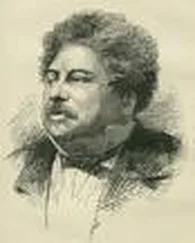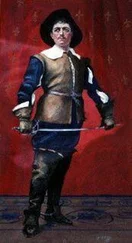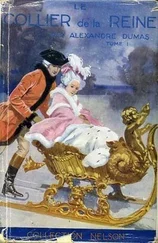Alexandre Dumas - Marguerite de Valois
Здесь есть возможность читать онлайн «Alexandre Dumas - Marguerite de Valois» — ознакомительный отрывок электронной книги совершенно бесплатно, а после прочтения отрывка купить полную версию. В некоторых случаях можно слушать аудио, скачать через торрент в формате fb2 и присутствует краткое содержание. Жанр: foreign_antique, foreign_prose, Историческая проза, на английском языке. Описание произведения, (предисловие) а так же отзывы посетителей доступны на портале библиотеки ЛибКат.
- Название:Marguerite de Valois
- Автор:
- Жанр:
- Год:неизвестен
- ISBN:нет данных
- Рейтинг книги:4 / 5. Голосов: 1
-
Избранное:Добавить в избранное
- Отзывы:
-
Ваша оценка:
- 80
- 1
- 2
- 3
- 4
- 5
Marguerite de Valois: краткое содержание, описание и аннотация
Предлагаем к чтению аннотацию, описание, краткое содержание или предисловие (зависит от того, что написал сам автор книги «Marguerite de Valois»). Если вы не нашли необходимую информацию о книге — напишите в комментариях, мы постараемся отыскать её.
Marguerite de Valois — читать онлайн ознакомительный отрывок
Ниже представлен текст книги, разбитый по страницам. Система сохранения места последней прочитанной страницы, позволяет с удобством читать онлайн бесплатно книгу «Marguerite de Valois», без необходимости каждый раз заново искать на чём Вы остановились. Поставьте закладку, и сможете в любой момент перейти на страницу, на которой закончили чтение.
Интервал:
Закладка:
The duke raised his sword with a gesture of desperate resolution.
"Vell, monsir, are you gondent?"
"Yes, my worthy friend, yes, for you have revenged" —
"The Dugue François, haf I not?"
"Our religion," replied Henry, in a solemn voice. "And now," he went on, addressing the Swiss, the soldiers, and citizens who filled the court and street, "to work, my friends, to work!"
"Good evening, M. de Besme," said Coconnas with a sort of admiration, approaching the German, who still stood on the balcony, calmly wiping his sword.
"So you settled him, did you?" cried La Hurière; "how did you manage it?"
"Oh, zimbly, zimbly; he haf heerd de gommotion, he haf oben de door unt I joost brick my rabier troo his potty. But I tink dey am gilling Téligny now. I hear his gries!"
At that instant, in fact, several shrieks, apparently uttered by a woman in distress, were heard; the windows of the long gallery which formed a wing of the hotel were lighted up with a red glare; two men were seen fleeing, pursued by a long line of assassins. An arquebuse-shot killed one; the other, finding an open window directly in his way, without stopping to look at the distance from the ground, sprang boldly into the courtyard below, heeding not the enemies who awaited him there.
"Kill! kill!" cried the assassins, seeing their prey about to escape them.
The fugitive picked up his sword, which as he stumbled had fallen from his hand, dashed headlong through the soldiers, upset three or four, ran one through the body, and amid the pistol-shots and curses of the soldiers, rendered furious because they had missed him, darted like lightning in front of Coconnas, who was waiting for him at the gate with his poniard in his hand.
"Touched!" cried the Piedmontese, piercing his arm with his keen, delicate blade.
"Coward!" replied the fugitive, striking his enemy in the face with the flat of his weapon, for want of room to thrust at him with its point.
"A thousand devils!" cried Coconnas; "it's Monsieur de la Mole!"
"Monsieur de la Mole!" reëchoed La Hurière and Maurevel.
"He is the one who warned the admiral!" cried several soldiers.
"Kill him – kill him!" was shouted on all sides.
Coconnas, La Hurière, and a dozen soldiers rushed in pursuit of La Mole, who, covered with blood, and having attained that state of exaltation which is the last resource of human strength, dashed through the streets, with no other guide than instinct. Behind him, the footsteps and shouts of his enemies spurred him on and seemed to give him wings. Occasionally a bullet would whistle by his ears and suddenly add new swiftness to his flight just as it was beginning to slacken. He no longer breathed; it was not breath, but a dull rattle, a hoarse panting, that came from his chest. Perspiration and blood wet his locks and ran together down his face.
His doublet soon became too oppressive for the beating of his heart and he tore it off. Soon his sword became too heavy for his hand and he flung it far away. Sometimes it seemed to him that the footsteps of his pursuers were farther off and that he was about to escape them; but in response to their shouts, other murderers who were along his path and nearer to him left off their bloody occupations and started in pursuit of him.
Suddenly he caught sight of the river flowing silently at his left; it seemed to him that he should feel, like a stag at bay, an ineffable pleasure in plunging into it, and only the supreme power of reason could restrain him.
On his right was the Louvre, dark and motionless, but full of strange and ominous sounds; soldiers on the drawbridge came and went, and helmets and cuirasses glittered in the moonlight. La Mole thought of the King of Navarre, as he had before thought of Coligny; they were his only protectors. He collected all his strength, and inwardly vowing to abjure his faith should he escape the massacre, by making a detour of a score or two of yards he misled the mob pursuing him, darted straight for the Louvre, leaped upon the drawbridge among the soldiers, received another poniard stab which grazed his side, and despite the cries of "Kill – kill!" which resounded on all sides, and the opposing weapons of the sentinels, darted like an arrow through the court, into the vestibule, mounted the staircase, then up two stories higher, recognized a door, and leaning against it, struck it violently with his hands and feet.
"Who is there?" asked a woman's voice.
"Oh, my God!" murmured La Mole; "they are coming, I hear them; ’tis I – ’tis I!"
"Who are you?" said the voice.
La Mole recollected the pass-word.
"Navarre – Navarre!" cried he.
The door instantly opened. La Mole, without thanking, without even seeing Gillonne, dashed into the vestibule, then along a corridor, through two or three chambers, until at last he entered a room lighted by a lamp suspended from the ceiling.
Behind curtains of velvet with gold fleurs-de-lis, in a bed of carved oak, a lady, half naked, leaning on her arm, stared at him with eyes wide open with terror.
La Mole sprang toward her.
"Madame," cried he, "they are killing, they are butchering my brothers – they seek to kill me, to butcher me also! Ah! you are the queen – save me!"
And he threw himself at her feet, leaving on the carpet a large track of blood.
At the sight of a man pale, exhausted, and bleeding at her feet, the Queen of Navarre started up in terror, hid her face in her hands, and called for help.
"Madame," cried La Mole, endeavoring to rise, "in the name of Heaven do not call, for if you are heard I am lost! Assassins are in my track – they are rushing up the stairs behind me. I hear them – there they are! there they are!"
"Help!" cried the queen, beside herself, "help!"
"Ah!" said La Mole, despairingly, "you have killed me. To die by so sweet a voice, so fair a hand! I did not think it possible."
At the same time the door flew open, and a troop of men, their faces covered with blood and blackened with powder, their swords drawn, and their pikes and arquebuses levelled, rushed into the apartment.
Coconnas was at their head – his red hair bristling, his pale blue eyes extraordinarily dilated, his cheek cut open by La Mole's sword, which had ploughed its bloody furrow there. Thus disfigured, the Piedmontese was terrible to behold.
"By Heaven!" he cried, "there he is! there he is! Ah! this time we have him at last!"
La Mole looked round him for a weapon, but in vain; he glanced at the queen, and saw the deepest pity depicted in her face; then he felt that she alone could save him; he threw his arms round her.
Coconnas advanced, and with the point of his long rapier again wounded his enemy's shoulder, and the crimson drops of warm blood stained the white and perfumed sheets of Marguerite's couch.
Marguerite saw the blood flow; she felt the shudder that ran through La Mole's frame; she threw herself with him into the recess between the bed and the wall. It was time, for La Mole, whose strength was exhausted, was incapable of flight or resistance; he leaned his pallid head on Marguerite's shoulder, and his hand convulsively seized and tore the thin embroidered cambric which enveloped Marguerite's body in a billow of gauze.
"Oh, madame," murmured he, in a dying voice, "save me."
He could say no more. A mist like the darkness of death came over his eyes, his head sunk back, his arms fell at his side, his legs gave way, and he sank on the floor, bathed in his blood, and dragging the queen with him.
At this moment Coconnas, excited by the shouts, intoxicated by the sight of blood, and exasperated by the long chase, advanced toward the recess; in another instant his sword would have pierced La Mole's heart, and perhaps Marguerite's also.
At the sight of the bare steel, and even more moved at such brutal insolence, the daughter of kings drew herself up to her full stature and uttered such a shriek of terror, indignation, and rage that the Piedmontese stood petrified by an unknown feeling; and yet undoubtedly had this scene been prolonged and no other actor taken part in it, his feeling would have vanished like a morning snow under an April sun. But suddenly a secret door in the wall opened, and a pale young man of sixteen or seventeen, dressed in black and with his hair in disorder, rushed in.
Читать дальшеИнтервал:
Закладка:
Похожие книги на «Marguerite de Valois»
Представляем Вашему вниманию похожие книги на «Marguerite de Valois» списком для выбора. Мы отобрали схожую по названию и смыслу литературу в надежде предоставить читателям больше вариантов отыскать новые, интересные, ещё непрочитанные произведения.
Обсуждение, отзывы о книге «Marguerite de Valois» и просто собственные мнения читателей. Оставьте ваши комментарии, напишите, что Вы думаете о произведении, его смысле или главных героях. Укажите что конкретно понравилось, а что нет, и почему Вы так считаете.












